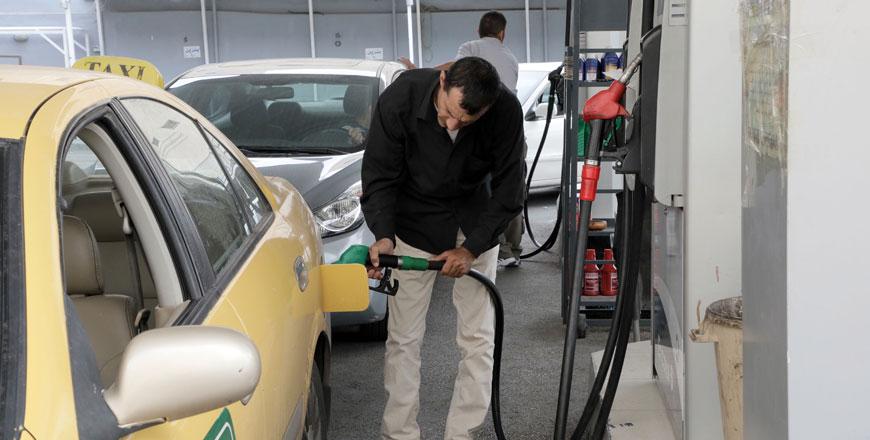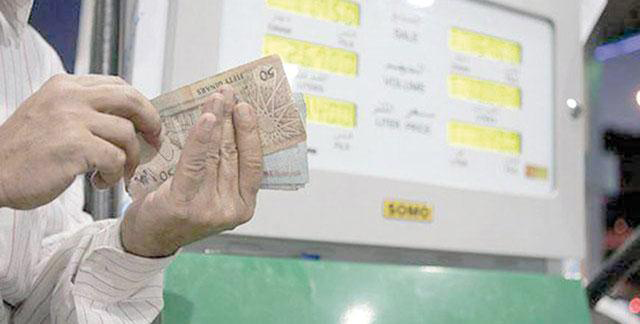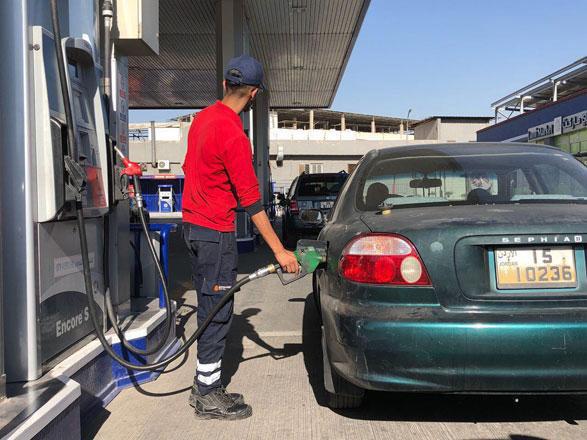You are here
Government working on regulations to increase transparency in fuel costs
By Mohammad Ghazal - Oct 01,2018 - Last updated at Oct 01,2018

Pricing of fuel derivatives takes into account the global average prices and costs of transportation, storage and evaporated fuel, among other costs (Photo by Osama Aqarbeh)
AMMAN — The government is working on a regulation to set a fixed tax rate on fuel derivatives to replace current mechanisms of pricing fuel derivatives, according to an energy official.
“There are currently several types of taxes and fees on fuel products. By the end of this month there will be a regulation setting a fixed rate on these products which will make the mechanism clearer to consumers,” Minister of Energy and Mineral Resources Hala Zawati told The Jordan Times on Monday.
Pricing of fuel derivatives currently takes into account the global average prices and costs, including the cost of transportation, storage, evaporated fuel and other costs. Then, special taxes, sales tax and fees are added to the price.
“There will be one tax for each type of the fuel derivatives and that rate will be fixed. The tax will be added to the price of a litre of oil arriving in Aqaba,” according to the minister.
In 2017, the government generated JD854 million from taxes and fees imposed on fuel derivatives, representing 13 per cent of last year’s local revenues.
As of November 1, the fixed tax rate, which is being studied, will be imposed on the derivatives, she added.
“The government decided not to increase the price of fuel derivatives in October although the price of crude oil went up globally as it is still working on the fixed tax rate regulation,” the minister said.
The fixed tax rate on fuel derivatives will set a tax for each type and it will be published in the Official Gazette after being approved by the Cabinet.
The way the monthly prices of fuels are calculated has been a “mystery” as far as many opposition figures, ordinary people and experts are concerned, triggering a public call for transparency.
Also on Monday, Farouq Hiyari, chief commissioner of the Energy and Minerals Regulatory Commission said the price of electricity will be reduced for October, from 24 to 22 fils per kilowatt-hour (kWh) on all sectors.
“The prices will be reduced as the experimental supply of Egyptian natural gas to Jordan started already. This resulted in reducing the costs and will lead to a further drop in costs in the future,” Hiyari told The Jordan Times.
Last month, the government said that Egypt started supplying the Kingdom with experimental quantities of natural gas based on understandings reached with the Egyptian side.
Officials said the quantities received by Jordan are in preparation for official pumping scheduled for early next year under the amendments to the natural gas purchase agreement signed last August.
Egypt has supplied Jordan with 7 million cubic metres of gas per day since 2004, but quantities started to decline at the end of 2009 and stopped in 2011 after the exposure of the Arab gas pipeline to 25 explosions in the Sinai area.
Jordan’s need for natural gas is estimated at 9.3 million cubic metres per day, used to generate electricity.
Related Articles
AMMAN — The government's reported intention to introduce a price ceiling policy into the pricing strategy of fuel derivatives has generated
AMMAN — Energy Minister Hala Zawati on Friday said that taxes on fuel derivatives are “really high” but they are part of the Kingdom’s monet
AMMAN — The government on Thursday decided to lower the prices of gasoline, kerosene, diesel and electricity, while maintaining the price of
















